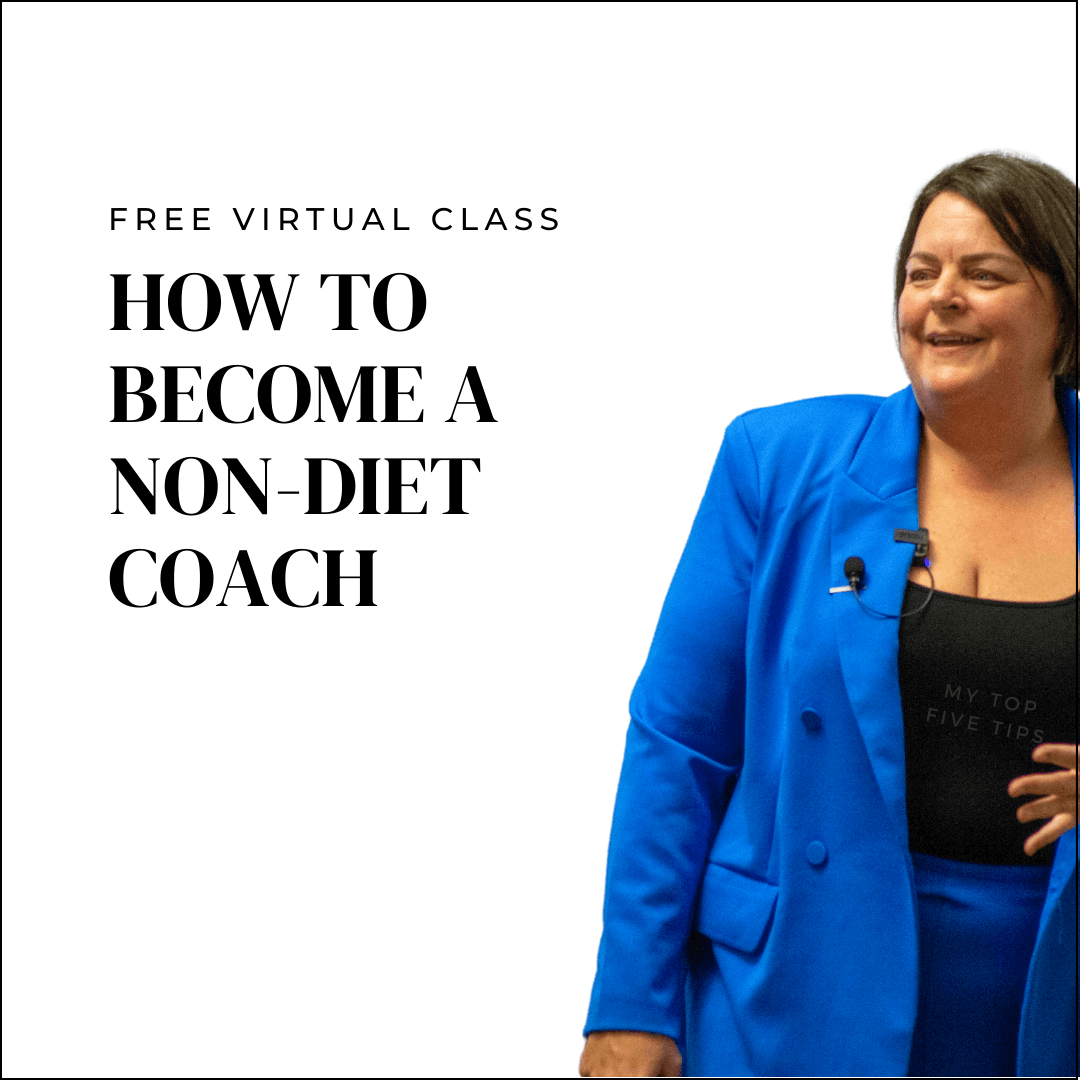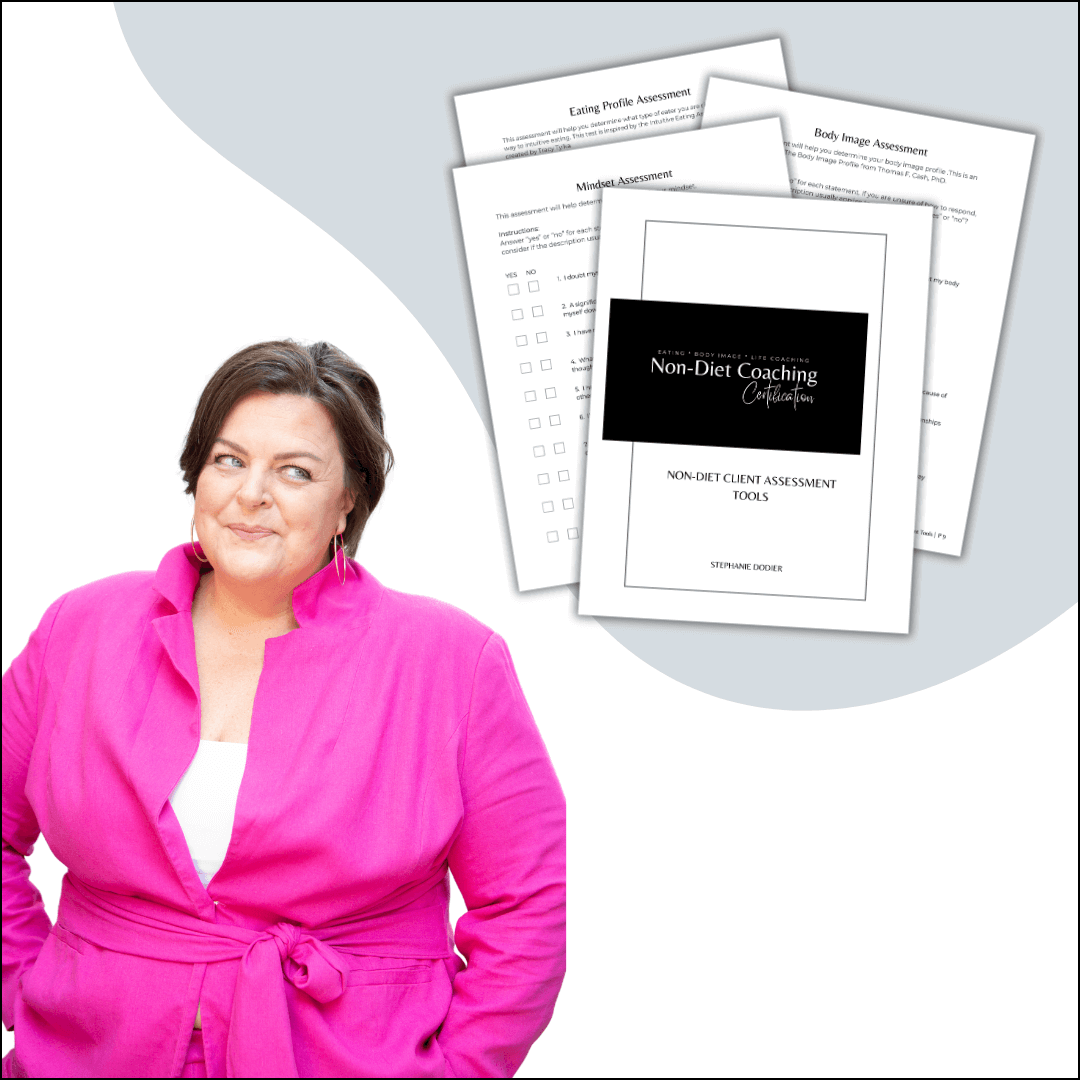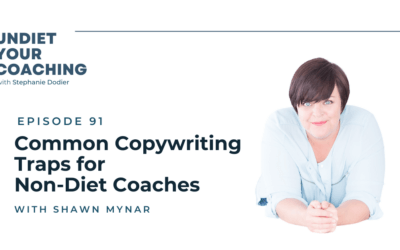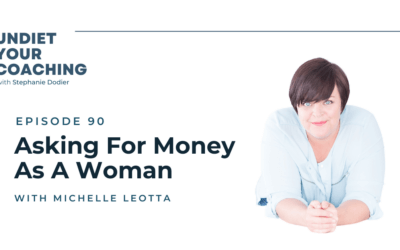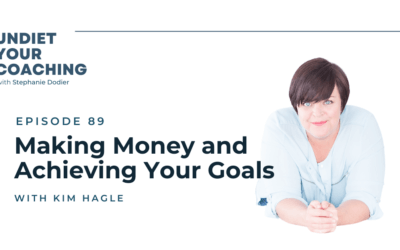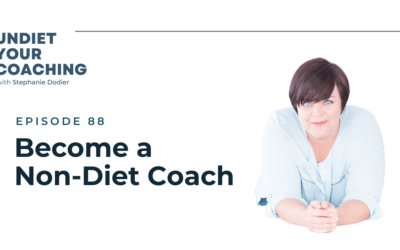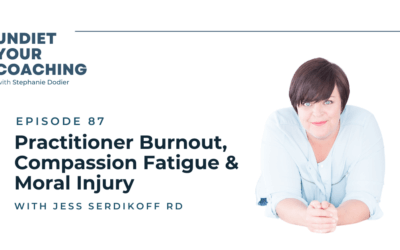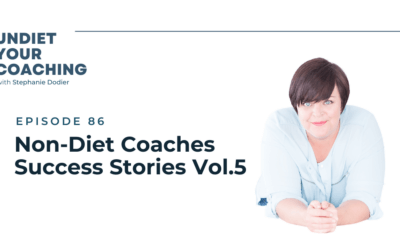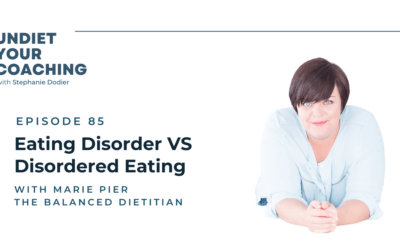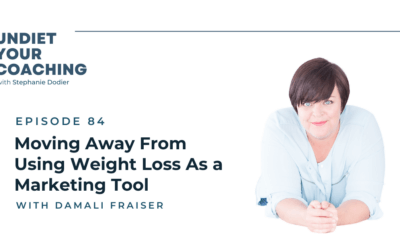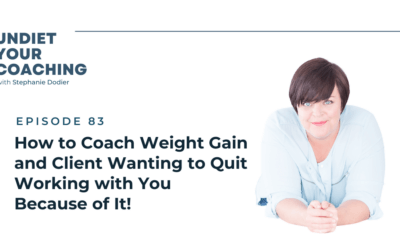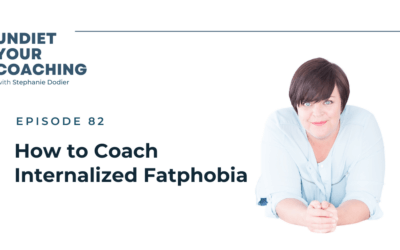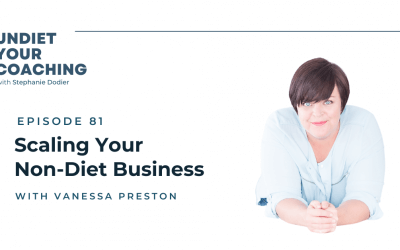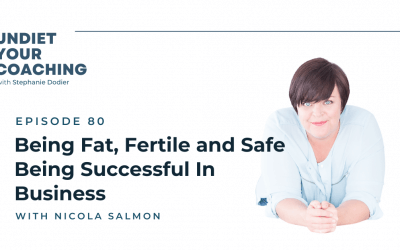Welcome to the Undiet Your Coaching Podcast
Every time a woman makes peace with food and her body and breaks up with dieting for good, the world feels a little brighter – and you as a coach can be part of the solution.
In this podcast, you’ll learn all about coaching using a non-diet approach, intuitive eating & body image coaching, ethical business & marketing strategies and more, along with business growth tactics.
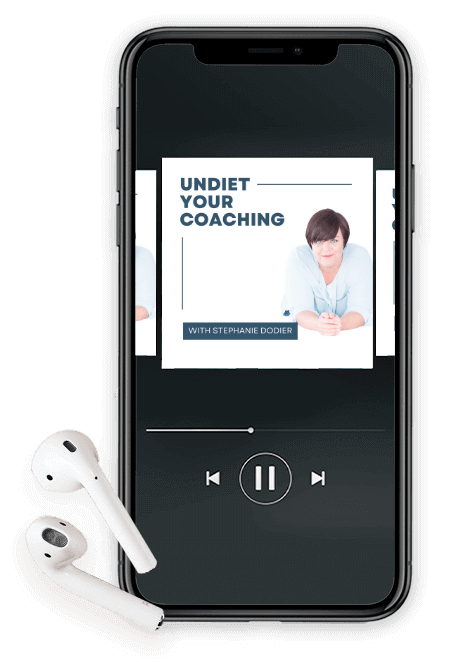
Coaches, listen up
Whether you’re a nutritionist, a personal trainer, a therapist, a nurse, a life coach, a body image coach, a intuitive eating coach or anything in between, one truth is constant: diets are draining the life out of the women you serve. In a world that wants us all to be the same, you have the power to be the difference that changes lives for good. All you have to do is undiet your coaching practice – and this podcast will give you all the advice and inspiration you need to nail it.
Hosted by Clinical Nutritionist and Certified Intuitive Eating Counselor, Stephanie Dodier, this podcast distills a combined 25 years of undieting knowledge and experience into 60 minutes or less in each weekly episode. If you want to develop your coaching skills in the fields of women’s health, intuitive eating, body image, and mindset and grow your business along the way, this is the place to be.

Health professionals, listen up
Whether you’re a nutritionist, a personal trainer, a therapist, a nurse, a life coach, a body image coach, a intuitive eating coach or anything in between, one truth is constant: diets are draining the life out of the women you serve. In a world that wants us all to be the same, you have the power to be the difference that changes lives for good. All you have to do is undiet your coaching practice – and this podcast will give you all the advice and inspiration you need to nail it.
Hosted by Clinical Nutritionist and Certified Intuitive Eating Counselor, Stephanie Dodier, this podcast distills a combined 25 years of undieting knowledge and experience into 60 minutes or less in each weekly episode. If you want to develop your coaching skills in the fields of women’s health, intuitive eating, body image, and mindset and grow your business along the way, this is the place to be.
Our Most Recent Episodes
91-Common Copywriting Traps for Non-Diet Coaches with Shawn Mynar
Common Copywriting Traps for non-diet coaches with Shawn Mynar. Top 3 actions you can implement to improve your copywriting skills.
90-Asking For Money as A Woman with Michelle Leotta
Asking for money as a woman with Michelle Leotta – why hearing no when we ask for money is very triggering and what to do about it!
89-Making Money and Achieving Your Goals with Kim Hagle
Non-Diet Coach Making Money and achieving their goals an interview with Non-Diet Fitness coach Kim Hagle.
88-Become a Non-Diet Coach
Become a Non-Diet Coach is the recording of the free training held on November 8th 2023. If you are curious about the Non-Diet Coaching Certification, this is for you!
87-Practitioner Burnout, Compassion Fatigue & Moral Injury with Jess Serdikoff RD
Eating Disorder VS Disordered eating and when is it time to refer out as a non-diet coach with Marie Pier The Balanced Dietitian
86-Non-Diet Coaches Success Stories Vol.5
Non-Diet Coaches Success Stories Vol.5 We are taking you behind the scenes of the non-diet coaching certification and the students share their experiences!
85-Eating Disorder VS Disordered Eating with Marie Pier The Balanced Dietitian
Eating Disorder VS Disordered eating and when is it time to refer out as a non-diet coach with Marie Pier The Balanced Dietitian
84-Moving Away From Using Weight Loss As a Marketing Tool with Damali Fraiser
Moving away from using weight loss as a marketing tool with Damali Fraiser. How to reclaim what it means to be FIT in diet culture world.
83-How to Coach Weight Gain and Client Wanting to Quit Working with You Because of It!
Coaching weight gain and client wanting to quit working with you because of it! I’ll be teaching on the two aspects of this question; you & your client perspective.
82-How to Coach Internalized Fatphobia
Coaching internalized fatphobia is not as difficult as it may appear. It becomes much easier when you have begun your own journey healing internalized fatphobia in yourself first.
81-Scaling Your Non-Diet Business-What No One Talks about with Vanessa Preston
Scaling Your Non-Diet Business-What no one talks about with Vanessa Preston. What does it take to make it happen?
80-Being Fat, Fertile and Safe Being Successful In Business with Nicola Salmon
Being fat, fertile and safe being successful in business with Nicola Salmon. An interview that will change your life.

Our Training Program
The non-diet coaching certification is a training program for women who want to coach eating, health, body image and life in a safe and ethical way.
Ready to get started with
non-diet coaching
Download The Non-Diet Coaching Free Ressources
The Non-Diet Coaching Training Tools are the ultimate foundation for every coach and professional who wants to help their clients with a non-diet approach.
